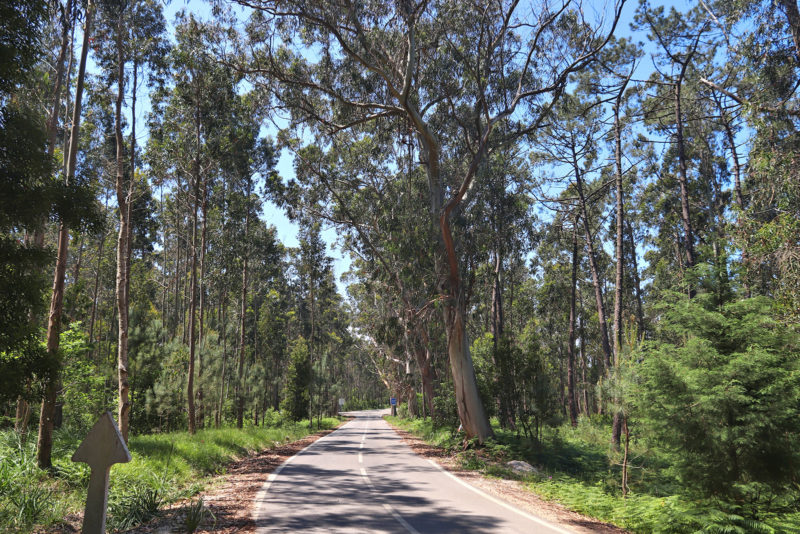Portugal collaborates with Finland to reduce forest fire risks

Portugal is one of the European countries most affected by forest fires, while in Finland there are almost too few forest fires. The cooperation project between the countries aims to reduce forest fire risks and at the same time increase the financial sustainability of forestry.
With over 300 million hectares burned globally, landscape fires are assuming increasingly extreme characteristics and causing more severe impacts on populations and ecosystems. They are a local problem with global consequences.
Fires result from a combination of factors such as the surrounding conditions, societal and economic factors, government policies, and incentives related to land use and occupation. Our use of fire and social interactions also play a role in their occurrence.
Portugal has had to endure severe fires for many years. Year 2017 was especially devastating. This was one of the reasons Portugal hosted the 8th International Wildland Fire Conference earlier in May.

“The more and more severe wildfires that Portugal has been facing in the past years are mainly due to lack of forest management, heavy investment in suppression rather than prevention measures and consequently fuel accumulation in forests”, says Mário Monteiro, board member of AGIF, the coordinating authority to protect Portugal from severe rural fires.
Local communities involved
Under the auspices of the conference, the Natural Resources Institute Finland (Luke) and Karelia University of Applied Sciences presented a joint project, where they have collaborated with Lisbon School of Economics and Management (ISEG) on a feasibility study on how to reduce the fire risk of forests and at the same time improve their economic sustainability. The study focuses on a number of local communities and small biomass plants throughout Portugal.
“The Finnish way of forest management as well as the know-how in assessing biomass availability were a good reference for Portugal. Also the way Finland has managed to tackle forest fires is a positive factor,” says Eero Mikkola, Senior Customer Manager at Natural Resources Institute Luke.
Monteiro continues: “Finland is a natural partner to work with, given its expertise in forest management, technological solutions and adequate public policies and regulatory instruments in this area”.

The local communities involved have engaged eagerly and aim for multiple benefits: Communities want to benefit more about forests, carry out a green transition in energy production as well as mitigate wildfire risk.
Bioenergy for schools
One means to reduce the fire risk and severity in forests in Portuguese circumstances is by lowering the fuel load, reducing the number of combustible biomass.
So far, removal of small sized trees has been seen costly because there is little demand for this kind of biomass. Demand could be increased by utilizing it to produce bioenergy for local communities. In small scale operations, the transport distances remain short and there are positive impacts on the local economy.
The objectives of the joint research project between Finland and Portugal includes assessing the technical harvesting potential of forest biomass for small scale heat production, determining feasible supply chains and estimating the supply costs from forests to heat plants and assessing socio-economic effects and defining suitable business models. The pilot cases include, among others, exploring heating solutions for local schools as well as a municipal civil protection center.

The pilot project commenced with collecting the needed basic information. This was carried out by remote sensing inventory based on satellite images and National Forest Inventory field data in order to get accurate and up to date data of the biomass volumes involved.
Harvesting potential would include the following sources, to a varying degree: early thinnings of Maritime and Stone pine and Acacia, burnt Eucalyptus stands, as well as biomass from roadside clearings.
In the next steps, AGIF will move forward to choose the contractors for the implementation of each of the pilot projects.
“The projects will be concluded this year and hopefully constitute cases for further expansion of these solutions, that together with others, are improving the land management in Portugal, the wildfire risk reduction, and consequently more attractiveness for forest investments“, Monteiro concludes.
The 8th International Wildland Fire Conference gathered together around two thousand leading land use and forest and wildfire experts, from international organizations to the scientific community and all the way to local fire and forest authorities. The event was organized in collaboration with e.g. OECD, EU Commission, FAO, US Forest Service, Canada, Portugal, United Nations Office for Disaster Risk Reduction (UNDRR), ITTO, and Korea.
The author is the Head of International Communication at the Finnish Forest Association, which publishes forest.fi, and the chairman of the UNECE-FAO Forest Communicators Network. Lintunen was invited to the conference to speak about communication, which is crucial in fire prevention and risk management.